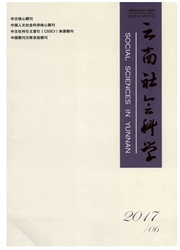

 中文摘要:
中文摘要:
乡俗与国法是在传统中国特定环境下维系地方和谐稳定的两大重要力量,长期互相调适,和谐共生。在处理家族财产继承时,二者都发挥着重要作用。随着我国现代化的推进和西方法理的输入,《中华民国民法·继承编》于1931年起颁布施行,但由于立法精神与中国社会文化尤其是农村乡俗存有诸多扞格,由之在处理继承权纠纷时产生了诸多问题。本文以农村财产继承权利为中心,以贵州清水江流域产生的天柱文书记载的天柱县龙映姜、杨翠桃关于继嗣田产之争的历史个案为例,分析《继承编》在具体施行当中的困境,并探讨国法、乡俗乃至乡情在维系地方和谐稳定中的作用。
 英文摘要:
英文摘要:
Rural customs and national laws are two important forces to maintain harmonious and stable in the traditional specific environment in China. They are mutual for adjustment and harmonious for coexistence for a long time. In dealing with the inheritance of family property, both play an important role. With the development of modernization and the introduction of the western judicial theory into China, The Civil Law of the Republic of China . The Inheritance was promulgated in 1931; however, due to the considerable contradictions between the legislation and the social culture in China, especially the rural customs, there appeared many problems in the process of dealing with the dispute related to the right of inheritance. Based on the rural property inheritance rights, this article takes as an example the historical dispute between Long Yingjiang and Yang Cuitao over the field right recorded in Tianzhu Instruments, and analyzes the predicament from the implementation of The Inheritance and tries to find out the role of the national laws, the rural customs, and even the passion from the villagers in maintaining the harmony and stability in the local areas.
 同期刊论文项目
同期刊论文项目
 同项目期刊论文
同项目期刊论文
 期刊信息
期刊信息
